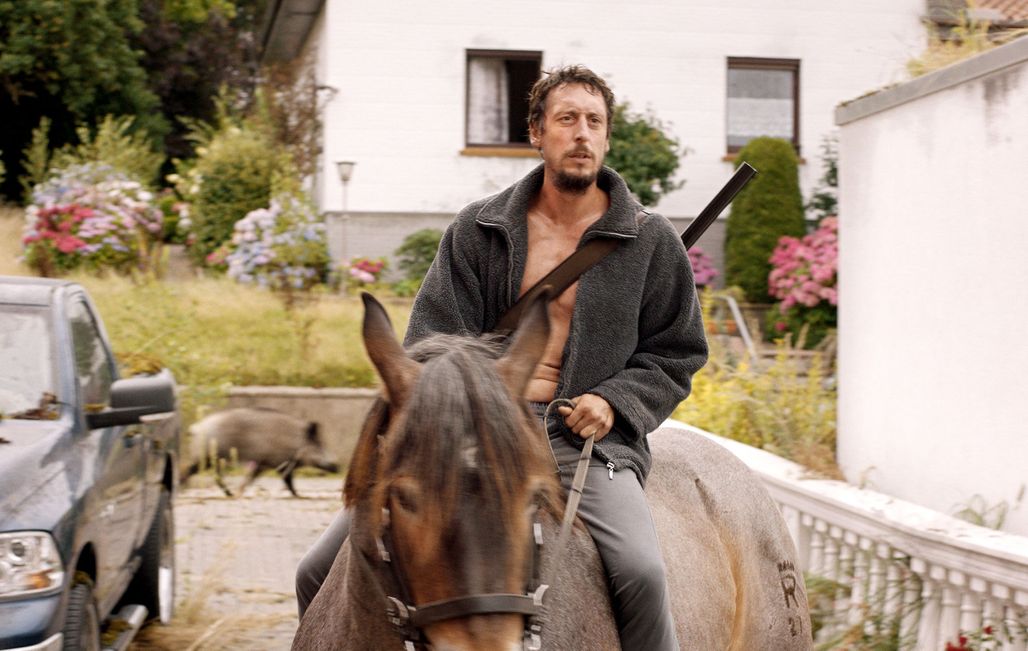
In My Room as seen by Ulrich Köhler

Ulrich Köhler is one of the great film directors from the talented Berlin School, as is his partner, Maren Ade, who stood out In Competition with Toni Erdman in 2016. The director is presenting his fourth feature film in Un Certain Regard, entitled In My Room, the story of a man who wakes up one day to find himself alone in a world bereft of all trace of human life.
In My Room is your first genre film – even if the genre isn’t all that easy to define.
My first thoughts on this project came about while reading, not watching films. Marlen Haushofer’s “The Wall,” Arno Schmidt’s “Schwarze Spiegel” (Black Mirror) or David Markson’s “Wittgenstein’s Mistress” are not easy to classify either. The absence of others allows them to view humans in isolation and free of social constraints. These are not dystopian texts. Schmidt’s protagonist is even quite happy about being alone.
At its core, “In My Room” is probably a castaway narrative. It involves childlike fantasies of a simple, self-sufficient life in nature.
The film’s title is the same as that of a bitter-sweet Beach Boys song…
“Now it’s dark and I’m alone, but I won’t be afraid, in my room…” To me, Armin is already a Crusoe: Even before humanity disappears, he has withdrawn, shut the door and is letting no one in. In the second part of the film, when he wants to open the door, it’s too late. Kirsi is similar to Armin at the start of the film; disappointed by bourgeois life, she has become a nomad. The two protagonists have taken paths leading in opposite directions.
An inversion of traditional gender roles?
Yes, she is restless, a hunter, and he is sedentary, a farmer who wants to start a family and create a new world. She doesn’t believe in the future and wants to experience something in the time that remains. Armin doesn’t take this seriously. She’s his Eve, and his dream must also be her dream. The two of them don’t succeed in reconciling their different views. Romantic love is a symbiotic concept and doesn’t prepare us particularly well for the compromises of everyday life.
Do we need to know what happened on the night that mankind vanished?
No. The disappearance is a postulate that heightens the inner condition of the protagonist. I’m no prophet, and the film doesn’t offer a vision of the future. Unlike dystopian cinema, it’s not about warning against undesirable aberrations or investigating causes. The deserted world is an experimental design that asks if – when freed of social constraints – we could make a fresh start.
It must’ve been difficult to work with so many animals, right?
Animals aren’t more complicated than people. Armin’s mare, Eibe, for example, was a peaceful workhorse; she came from a nearby farm that’s worked exclusively by horse. Incidentally, her owner plays the hunter in the first part of the film. One problem, however, was Eibe’s aversion to goats. She hated her stable because goats had been provisionally housed there. She couldn’t stand the smell and perpetually wanted to break out.
I, on the other hand, really came to appreciate goats. They’re clever, inquisitive and idiosyncratic, and you can always negotiate with them if you have a few tasty beech branches at hand.
How did you find Elena Radonicich, the actress who plays Kirsi?
We looked for Kirsi for a very long time. Elena was the first candidate I believed could have lived alone for five years. Her autonomy was astonishing.


